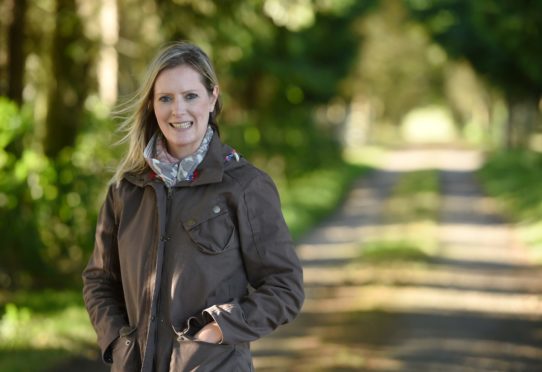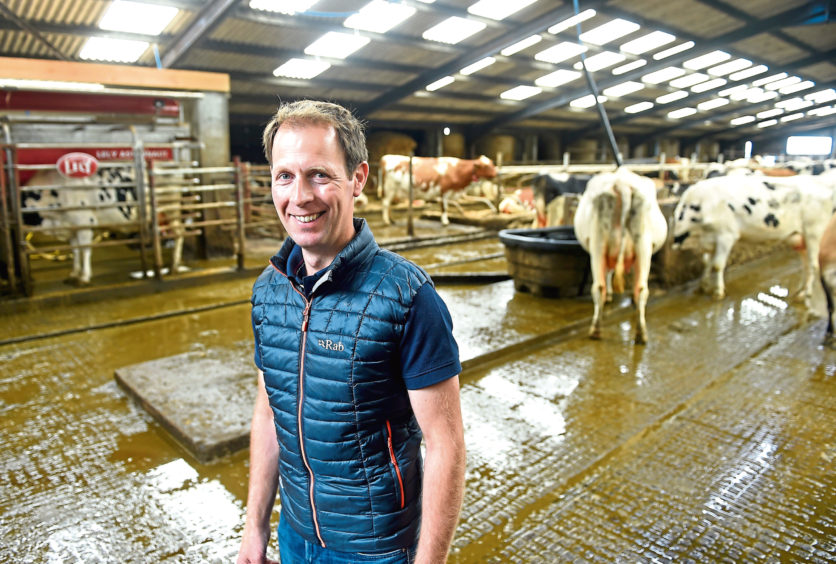Considering the restrictions, our Easter holidays have been busy.
The main difference is that anything we are doing is outdoors, which can only be a good thing in terms of our health and wellbeing.
Meeting friends and family outside for garden playdates, loch walks, woodland cycles or beach plays have become the new norm and is something I hope will continue well after lockdown.
We’ve enjoyed glorious sunshine days with friends as well as chocolate egg hunts in the hail with family this Easter and it has certainly made me realise how good being outside is for my mental and physical health: away from screens – me and the girls – and not feeling the pressure to bake, clean and tidy up for visitors.
Nick and I have lived at Rootfield for almost 20 years – the original dairy herd was moved here in 1996 as the land around the family home at Parks Farm in Inverness was sold off for housing – and are still astonished at the places we’ve discovered on our doorstep during lockdown.
Last Sunday we spent the day with a close cousin and our families – walking in a forest we have only driven past before, enjoying artisan coffee and locally baked cakes at my brother’s latest coffee venue in the village of Croy, then visiting the historic Clava Cairns for the first time in our adult lives.
We want these to be the memories Daisy and Mollie have of this time; running free in the expansive Highland countryside will hopefully help them to focus on what is good in our lives right now rather than on what they’re not allowed to do.
From the antics of native wildlife to the beautiful bluebells growing from an old Belfast sink in our neighbours’ garden on our farm loop walk, we have much to be grateful for.
Elsewhere on the farm, the grass is getting greener every day and ploughing is almost complete.
Nick is implementing the grazing platform he researched last year; fencers have just completed the enclosures for the 25 paddocks with work shortly to start on a kilometre-long track to ensure easy and safe access for the cattle from cowshed to pasture.
The new platform will see the herd intensively grazing different sets of paddocks for a set number of hours between visits to the shed to be milked by the robots.
If a cow visits the robot to be milked, she will be rewarded with access to lush pasture in a new paddock with grass of optimal length – the height of a can of juice – for nutrition.
However, if the cow does not visit the robot she returns to the same paddock she was in.
The herd will graze the paddocks in rotation so that the grass in the first paddock will be the optimal quality by the time they have finished grazing paddock 25.
Benefits of this system include less time and materials spent on bedding the cows, less time scraping inside the shed and not using the feeder wagon, at least from May to August when the pasture is at its most nutritious.
As with all things new, there’s bound to be a transition period while the cows get used to the system but as with all things Nick implements, it should result in better time/cost efficiencies. Like us humans, having the cows outside for as much time as possible is a good thing, too.
In other exciting news, Landward came to the farm this week. The BBC programme was in the area filming a segment on the Black Isle featuring local food producers including us.
Presenter Dougie Vipond visited the honesty shop at Rootfield then popped into the production kitchen to make some yoghurt to take to co-presenter Nick Nairn at nearby Garguston to cook into a chicken tikka masala. The programme will be aired on BBC1 on May 28.
- Jo lives at Rootfield Farm in the Black Isle with Nick, daughters Daisy and Mollie, and 120 dairy cows. The family runs the Black Isle Dairy.

